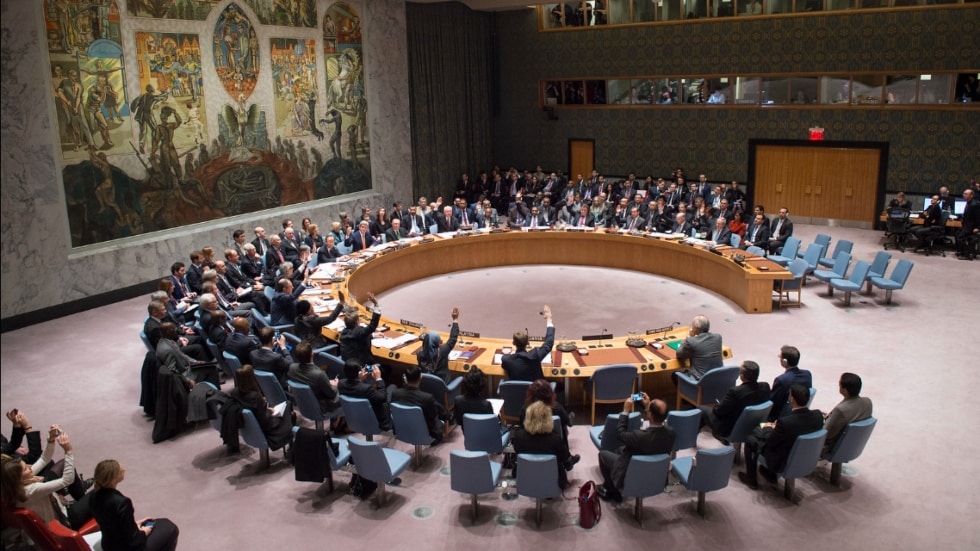China and Russia used their veto power at the UN Security Council to kill a US-sponsored resolution that said there was a need for an immediate ceasefire in Gaza, with other countries arguing its language was watered down. The US previously rejected a series of resolutions that demanded a ceasefire.
On Friday, the Security Council voted 11-3-1 on the resolution, with Russia and China choosing to veto it. Algeria, the primary sponsor of prior ceasefire resolutions, also voted against the motion.
During her remarks to the Security Council, US Ambassador to the UN Linda Thomas-Greenfield said that Washington wanted “an immediate and sustained ceasefire” in Gaza. However, critics of the US resolution say its text actually gives Israel a green light to continue its onslaught.
Explaining his country’s opposition after the vote, Algerian Ambassador Ben Jama said, “The text submitted to the vote today was not a clear message of peace, and would have allowed more Palestinian civilians to be killed.”
Executive vice president of the Quincy Institute, Trita Parsi, observed that the measure includes Israeli demands, while core issues for Palestinians are worded ambiguously. “The text points out that this effort to secure a ceasefire is ‘in connection with the release of ALL remaining hostages,’” Parsi wrote on X. “This is an Israeli demand that is not likely to be accepted by Hamas in return for a time-limited ceasefire rather than a permanent one.”
Russian Permanent Representative to the United Nations Vasily Nebenzya said the motion was part of a “show” put on by the US. “The UN Security Council has been unable to pass a document demanding a ceasefire in Gaza for six months. All attempts have run up against the wall of US resistance,” he said. “Even now, we are witnessing a typical hypocritical show, where the US is trying to sell something disguised as ‘a ceasefire’ which is in fact a vague formula for determining a ceasefire imperative.”
China’s ambassador, Zhang Jun, argued that the US resolution implicitly authorized further Israeli operations in Gaza. The US resolution is “evasive on the core issue of ceasefire. The final text remains vague, failing to call for an immediate ceasefire or even providing an answer on how to achieve one in the short term.” He continued, “Instead, the US draft sets preconditions for a ceasefire, which is tantamount to giving a green light to continue killing and is unacceptable.”
The US has voted against three previous resolutions calling for a ceasefire and other motions at the Security Council that would have condemned Israeli actions in Gaza, such as the February 29 Flour Massacre that left more than 100 Palestinians dead. Justifying those votes, Thomas-Greenfield claimed that the call for a ceasefire would undermine Washington’s effort to achieve a deal to release hostages still held by Hamas.
While the White House has fixated on achieving a hostage deal to end the fighting, Tel Aviv has repeatedly stated it will not end its offensive operations until it eliminates Hamas. Israeli officials say to achieve that goal, it must launch an assault on Rafah.
Aid agencies warn an attack on the city of 1.5 million will lead to utter devastation. Ambassador Zhang said the new US resolution did not even condemn a potential attack on Rafah. “The draft does not clearly express its opposition [to an attack on Rafah], which will send a very wrong signal and bring serious consequences,” he told the UNSC.
This article was originally featured at Antiwar.com and is republished with permission.








